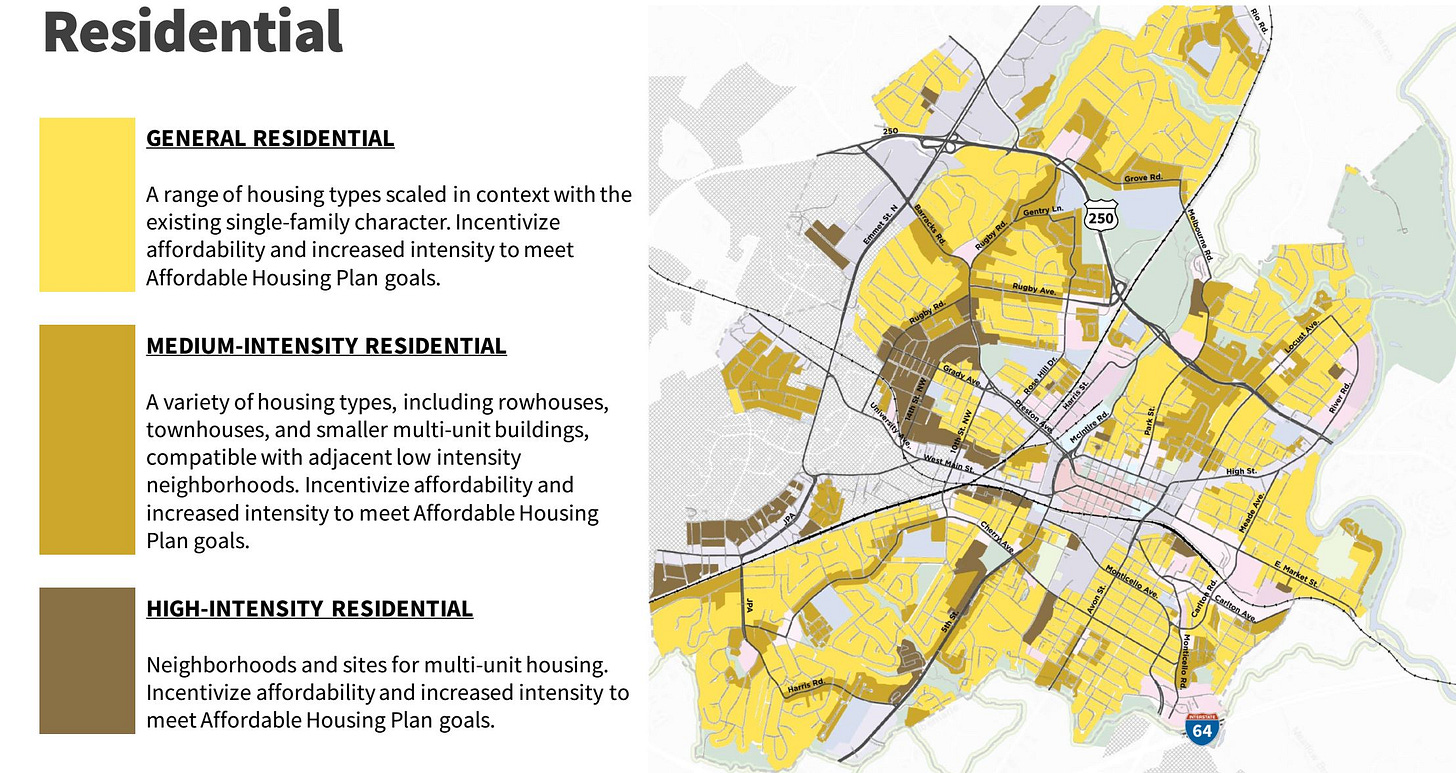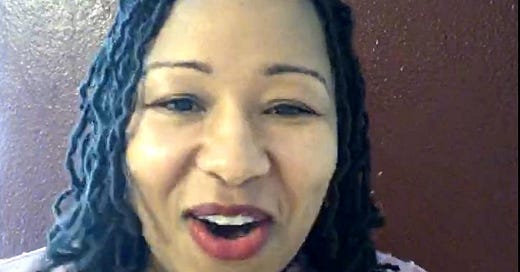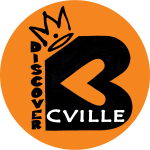Today's Patreon-fueled shout-out is for the Plant Northern Piedmont Natives Campaign, an initiative that wants you to grow native plants in yards, farms, public spaces and gardens in the northern Piedmont. Native plants provide habitat, food sources for wildlife, ecosystem resiliency in the face of climate change, and clean water. Start at the Plant Northern Piedmont Natives Facebook page and tell them Lonnie Murray sent you!
On today’s show:
Consultants with the Cville Plans Together consultants explain more about the land use policy reform they’re overseeing
Charlottesville Mayor Nikuyah Walker will make a decision running this year by Friday
Charlottesville Albemarle Convention and Visitors Bureau launches new campaign to attract Black tourists to the area
There are four declared candidates in the race for two seats on Charlottesville City Council, and none of them are incumbents. Mayor Nikuyah Walker announced her reelection campaign in February of 2020 and took to Facebook Live today to say she will decide by Friday whether to go through with her candidacy. In her comments, she cited a series of deaths in her family as one reason why she has not been campaigning yet. In mourning, she’s realized how much public service has taken from her life.
“It consumes every day all of my time,” Walker said. “It has been very difficult to serve in Charlottesville.” (watch the video)
Walker said she had heard from former City Councilor Holly Edwards as well as Councilor Wes Bellamy that being a Black person in office was difficult.
“They didn’t come blazing the way I’ve been blazing,” Walker said. “It was still a challenge for them. One thing I’ve learned is that really no matter who you are, if you’re Black and female, or just Black, people don’t want to listen to you.”
Walker said if she doesn’t run, she will continue to hold people accountable. If Walker does run she will be on the ballot as an independent as she was in 2017 when she became the first non-party affiliated candidate to win election since 1948. She’ll be on the ballot with fellow independent. Yas Washington, who did not qualify for the Democratic Primary on June 8. In that race, three candidates are seeking two nominations. The candidates are School Board member Juandiego Wade, 2019 candidate Brian Pinkston, and political newcomer Carl E. Brown.
Last week, the Public Housing Association of Residents and two other organizations held a campaign forum for all declared candidates in which Walker did not participate. (watch the event on YouTube)
On Thursday, the Martha Jefferson Neighborhood Association will hold a forum beginning at 7 p.m., and I’ll hold a joint forum with the Free Enterprise Forum on May 27, also at 7 p.m.
The quasi-governmental organization that seeks to attract tourists to Albemarle and Charlottesville has formally begun a campaign to bring people to the area to learn about Black stories. The Charlottesville Albemarle Convention and Visitors Bureau has launched Discover Black Cville across social media and other channels, including Facebook and Instagram. According to a press release, the initiative is the result of nine months of meetings with dozens of community members
“Discover Black Cville marks the beginning of ongoing efforts to tell modern, historically accurate, and inclusive Black stories in Charlottesville and Albemarle County,” reads the release. “These efforts will be guided by a steering committee of engaged community members
highlighting the arts, outdoor recreation, local food and beverage, thriving culture, and strong community.”
The goals of Discover Black Cville are to support Black-owned businesses while attracting more Black visitors to the community, and to change “the view of Charlottesville in the national perspective while simultaneously working toward real change.”
More on the campaign is available on the CACVB website.
There are two weeks left to get in your input for the current round of community engagement for the Cville Plans Together initiative. To recap, that’s a project commissioned by a former City Council in 2019 to oversee creation of an affordable housing plan, the update of the Comprehensive Plan, and a rewriting of the zoning code.
Council adopted the affordable housing plan in March, and the public is being asked now to comment on something called the Future Land Use Map as well as draft chapters of the Comprehensive Plan. This is all a precursor to an update of the zoning code.

Last week, staff with Rhodeside & Harwell held the first of two webinars to update the latest changes. I wrote up a summary of a March 30, 2021 Planning Commission work session with the Charlottesville Comprehensive Plan as well as a preview of the May 10, 2021 webinar. Jennifer Koch is a project manager with the company. (watch the May 10 webinar)
“The Comprehensive Plan is a document that describes and illustrates community goals for the future and guides decision-making for various matters including land use and development, transportation, economic development, etcetera,” Koch said. “Once this document is adopted, it is a statement of the city’s intentions and policies regarding development.”
Once adopted, Rhodeside & Harwell will get to work on the next phase.
“In order for the land use and design policies and guidelines to be truly effective, they must be reflected in the zoning ordinance,” Koch said. “That’s why after the Comprehensive Plan update process, we’re going to be moving forward to the zoning rewrite.”
But until then, May is a time for community engagement. The next scheduled meeting with the Planning Commission is slated for late June. The May 10 webinar and a series of pop-up community engagement exercises are intended to educate people before they submit comment in several ways:
Send an email to engage@cvilleplanstogether.com
Call 1-833-752-6428
There is one consolidated chapter called Land Use, Urban Form, and Historic and Cultural Preservation. Many of its goals and strategies are taken from the affordable housing plan adopted by Council in March. That plan has influenced other chapters, too.
“With the housing chapter, we pulled in a lot of the recommendations from the affordable housing plan,” Koch said. “Actually, all of the recommendations from the affordable housing plan are within the Comprehensive Plan draft and that includes everything from the land use recommendations to the funding, governance, tenants rights, and subsidy recommendations.”
Many of the areas being suggested for a higher intensity on the Future Land Use Map are locations where there are high concentrations of places with deeds with covenants that prevented sale, rental, or occupation by anyone deemed to be non-white. This was a common practice in much of the United States in the mid-20th century after being validated in 1926 by the U.S. Supreme Court in the Corrigan v Buckley case. In 1948, a later court ruled against the practice in Shelley v. Kraemer.
The practice continued anyway, with many deeds in Charlottesville recording the covenants until 1968 when the Federal Fair Housing Act explicitly banned them and made it illegal to discriminate on the basis of race, color, sex, religion, national origin, or disability.
Journalist and researcher Jordy Yager has been working to document the location of these covenants. The Mapping Cville Project is informing the Comprehensive Plan.
“They are mapping where racial covenants were historically located in the city and these racial covenants really define where particularly Black citizens were able to live within the city,” said Ron Sessoms of Rhodeside & Harwell.
Sessoms said many of these areas are focused north of downtown and he named the Venable and Rugby neighborhoods as well as land between Preston Avenue and U.S. 250.
“As a result, the African-American community was not able to live there and today these communities remain largely white and not diverse,” Sessoms said.
Sessoms continued his history lesson and here are some of the highlights. The first Comprehensive Plan in 1958 called for elimination of slums which led to the urban renewal first of Vinegar Hill in the 60’s and then Garrett Street in the late 70’s. Parking standards were adopted as well as road-building projects to ease congestion. These projects disproportionately affected Black households.
“There’s still some community hurt related to that,” Sessoms said.
A zoning update in 1991 emphasized single-family zoning through the city. Twelve years later in 2013, another rezoning up-zoned several transportation corridors and created the Neighborhood Commercial Corridor zoning. And the city is poised to act on a comprehensive rezoning rewrite in the near future and that begins with the adoption of the Future Land Use Map which colors different parts of Charlottesville with different intensities of development.
“It is a guide that can be used in evaluating development proposals in the future for rezoning, but it is not a legally binding plan and is not legally required so it’s a plan that is visionary but it is not legally binding which is different from zoning,” Sessoms said. “Zoning really is a legally binding set of ordinances.”
The details about what can be developed, either by-right or through a special use permit, depends on the zoning.
“There will be much more refinement of the future land use map recommendations,” Sessoms said.

Between March 30 and May 10, the land use map and its legend had been updated. What had been described as Low Intensity Residential is now described as General Residential which seeks to encourage more than just single-family housing by allowing up to three units per lot.
“Right now a lot of the areas that are shown as General Residential are now zoned at least R-1, or one unit per lot,” Sessoms said.
Koch said part of the intention is to support wealth-building in the community by encouraging construction of smaller-scale homes for homeownership.
“The land use policies can not do any of these things on their own,” Koch said. “We can’t have a fully equitable land use program unless the land use map is paired with other programs to ensure affordability and protection for communities.”
Koch acknowledged on the May 10 webinar that many had concerns about what they saw on the map. Someone asked in the virtual chat if the consultants have walked around the city.
“Fully understand and we’re glad that people have raised potential concerns in your neighborhood,” Koch said. “You all have a much deeper understanding than we do but we have been around and we understand that looking at these potential changes for the future can be overwhelming and concerning but we have built in a requirement to consider the existing neighborhood context.”
The steering committee for the Cville Plans Together initiative next meets virtually on May 19 at 5:30 p.m. (register) The next webinar is scheduled for May 25 at 6 p.m. (register)

















Share this post